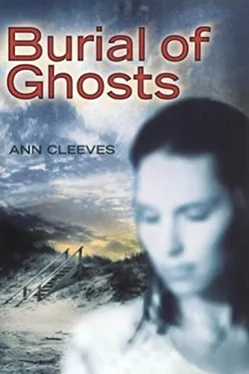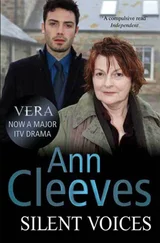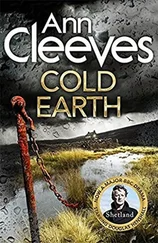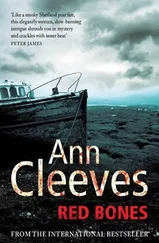She got an already opened bottle of red from the larder and poured two goldfish-bowl-sized glasses. We sat on each side of the table.
‘So,’ she said. ‘We have to decide what to do next.’
I didn’t answer. I was enjoying the wine. I mean really enjoying it, the smell and the taste.
‘What should we do?’ She was insistent, pulling me back to the problem. I didn’t want to think about it. I wanted that moment, with the wine in my nose and on my throat and tongue to last. But she couldn’t let it alone. ‘I mean, it’s up to you, isn’t it? You’d be the one to press charges after tonight. You’d be the vital witness.’
‘No,’ I said. ‘I don’t grass. Anyway, it’s up to you.’
‘What do you mean?’
‘Ronnie didn’t kill Thomas.’
‘Not on his own,’ she said. ‘I accept that. Stuart must have been involved. Stuart was pulling the strings.’
‘No.’ And in that word I threw it all away – the chance of being a part of this. I turned away the good wine, winter walks along the beach with Dickon, family Sunday lunches at this table, girlie conversations with Joanna on the phone. All that was on offer. I could tell. Why the scruples? It wasn’t as if I owed Philip anything, as if Thomas had really been his son. I suppose it was pride. It was a dumb time to discover that I had some pride after all. But Joanna had bought everyone else one way or another. She wasn’t going to buy me.
‘Stuart didn’t invent the commission to track down Thomas Mariner,’ I said. ‘He believed in Philip’s illegitimate son as much as I did. It wasn’t Stuart or Philip who invited me to the funeral and offered me money. It was you. You set the whole thing up.’
‘Philip would have been glad you were there.’ She dipped her mouth towards the wine, and her whole face seemed swallowed up by the enormous glass. ‘You had quite an effect on him.’
‘He told you?’
‘Of course. We shared everything. He talked about leaving you some money in his will but he thought you might be offended. “She’s a free spirit. Independent. She’ll remember me anyway. And if she doesn’t, that’s fine. At least the memory won’t have been bought.”’
‘Weren’t you jealous?’
‘Of course I was bloody jealous. But he was dying. What could I say?’
I remembered how Philip had described Joanna in Marrakech. She’s a saint. She denies me nothing. At the time I’d thought it a dry, almost ironic comment, but it had been true. Because of his illness she’d felt obliged to fulfil his dreams. He’d been cruel and careless of her feelings. He’d taken advantage of her.
‘Tell me what happened.’ It might seem ridiculous, but I didn’t feel at all scared during this conversation. Perhaps it was because of where it was taking place. I mean, it wasn’t like the Gothic setting of a windy wood in the shattered moonlight. This was safe, domestic.
She got up and fetched another bottle of wine and a corkscrew. ‘Are you hungry? I think there’s some cheese.’
She wasn’t trying to distract me. Even then she felt some obligation as a host. She put a lump of Stilton on a plate and brought out butter and crackers, still in their wrappers.
‘I suppose,’ she said, ‘it was all about money. I hate to admit it, but that was what it came down to.’
‘You formed the Countryside Consortium as a money-making venture?’
‘No, not at all. Not at first. I mean, I really believed we were in danger of losing a landscape I loved. There’d been so much change, so much red tape, people from the town telling us what to do. I wanted Wintrylaw to stay as it always had been for Flora and Dickon. I wanted to see my grandchildren play where I’d played.’ She looked up at me. ‘That’s not too much to ask, is it?’
I shrugged. She’d been lucky to have it first time round. ‘I’ve never really believed in inherited wealth.’
‘Oh, God,’ she cried. ‘Wealth didn’t come into it. It was about survival.’
I thought all that was relative. With her good wine and expensive cheese she seemed to be surviving fine. But this time I didn’t say anything. This was her story. Let her tell it her own way.
‘People thought we were well off. We had the house and the land. Philip’s TV series. My photography. But it was all precarious. We weren’t any good at saving. Things like pensions and health insurance seem so tedious, don’t they? You really wouldn’t want to be seen as the sort of person who bothered about that. Then Philip got ill and the telly dried up. He was always freelance, so there was no sick pay. Nothing. And once he knew he was dying there was so much he wanted to do and see.’
‘The Atlas Mountains.’
‘Quite. And I couldn’t tell him it was impossible.’
No. You were a saint. You denied him nothing.
‘So I started taking it from the Consortium. Borrowing it at first. In the beginning I really intended to pay it back. The group had so much money. You wouldn’t believe how generous people were. Not only rich people. Cheques came in by every post. And the committee couldn’t decide what to spend it on. While they were squabbling among themselves about who deserved it most, it just piled up in the bank. Such a waste…’
‘It can’t have been that easy. There must have been an accounting system.’
‘It was a shambles. Really. Everyone was taken by surprise by how quickly the organization grew. There were a few pieces in the Sunday papers and in the glossy country living magazines, and the campaign seemed to capture the public’s imagination. None of us were ready for the success. The whole office was run by a couple of middle-aged volunteers and a schoolboy.’
‘Marcus Tate?’
‘The son of one of our supporters. Because our marketing was very slick, everyone assumed a competent machine to back it up. It wasn’t true. The office looked impressive enough – we were donated some hardware by a business supporter – but no one there really understood what was going on.’ She held her glass with both hands. ‘We were credited with far more power than we actually had. Some journalists thought we were devils, evil landowners who would deny access to common land to harmless walkers. Our supporters saw us as the saviours of every rural tradition – from village schools to the right to hunt. Of course we were neither. We were a bunch of well-meaning amateurs.’
Well-meaning?
‘Then Thomas Mariner found out that you were stealing?’
‘Thomas Mariner had his own agenda.’ Joanna’s voice was frosty. ‘He hated Ronnie Laing. He joined up to make trouble. I didn’t discover that until later.’
And he loved Nell Ravendale, I thought. He was planning a grand gesture to impress her. Nell hated the Consortium. She was in the camp which saw them as devils. She’d dragged Dan to the Wintrylaw fundraiser to spy out the opposition. That was why she’d been so circumspect in her description of Ronnie Laing. Thomas intended to cause as much of a scandal around Joanna’s theft as possible. There’d be no hush-up, no tactical retirement and discreet repayment plan. He’d make sure of that. That was why he’d stirred up Shona Murray’s interest. It was part of his strategy for getting back the love of his life.
‘Was Harry Pool one of your supporters?’
‘He gave us a big donation early on.’
Perhaps Thomas had known about that. And when he’d started as a volunteer in the office he’d wondered where all the money had gone. I cut a sliver of Stilton and perched it on a water biscuit.
‘I didn’t mean to kill him,’ she said, almost to herself. The wind blew a tuneless whistle outside the window. ‘Of course not. I thought I’d persuade him. Anyway, he was surprisingly difficult to track down without drawing attention to myself. He stopped coming into the office. No one seemed to know where he was staying. That’s where you came in.’
Читать дальше












